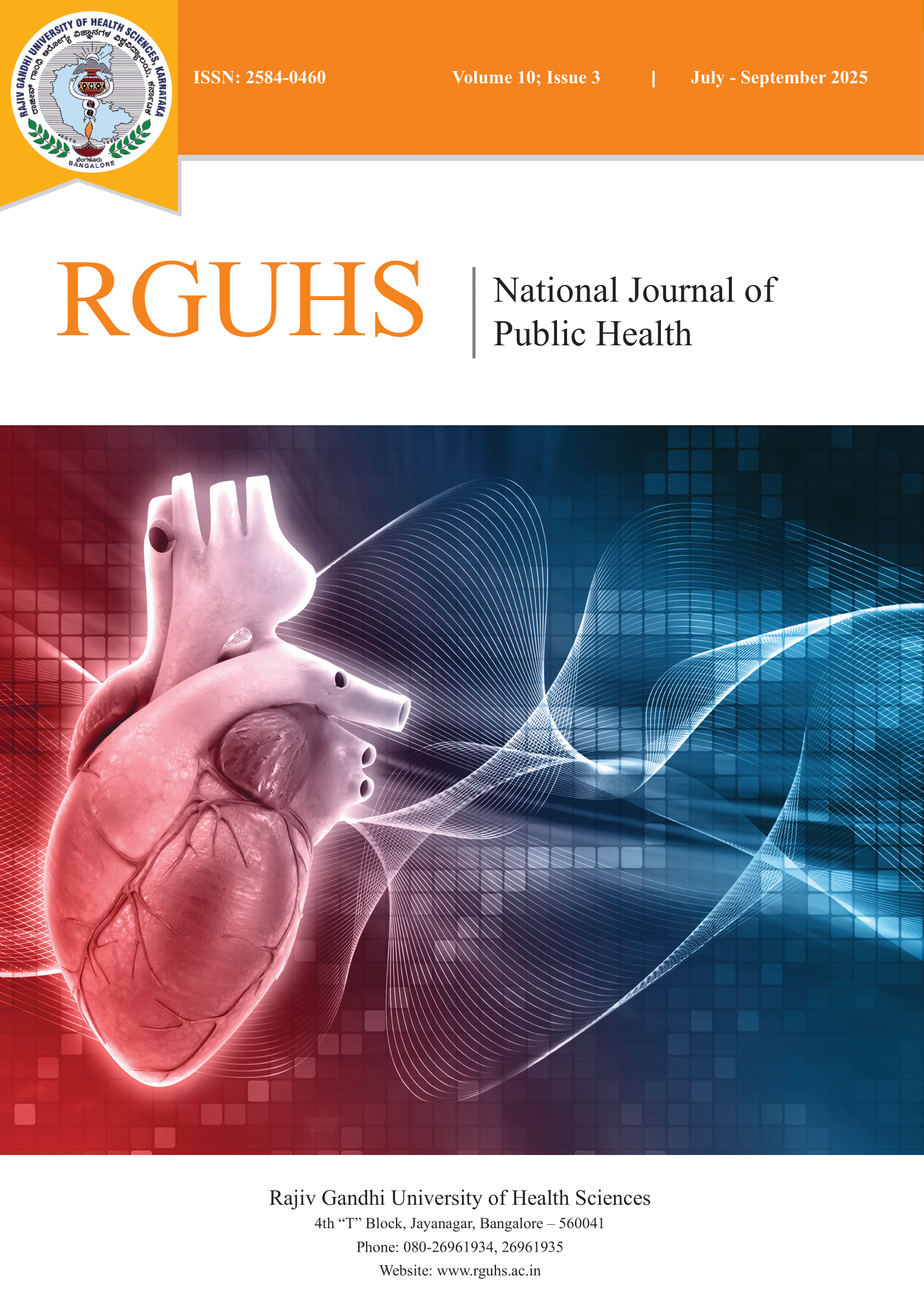
RGUHS Nat. J. Pub. Heal. Sci Vol No: 10 Issue No: 3 eISSN: 2584-0460
Dear Authors,
We invite you to watch this comprehensive video guide on the process of submitting your article online. This video will provide you with step-by-step instructions to ensure a smooth and successful submission.
Thank you for your attention and cooperation.
Joshi R1 , Ashwini N2, Vijaya AN3 and Mallapur MD4
1 - Private practioner, Bijapur; 2 - Assistant Professor, department of Public health, JN Medical college, KLE University, Belgaum; 3 - Professor ( rctd ); 4 - Statistician, department of Community Medicine, JN Medical college, KLE University, Belgaum

Abstract
BACKGROUND: Adotescence is the period during which lifestyle pattems of behavior are being formed. These behaviors set the stage for future health problems. The risk-taking and health•compromising lifestyles are viewed as crucial determinants of future health, iliness, disability, and premature mortality.hence the objective ofthe study was to know the prevalence and pattern oftobacco consumption amongst the adolescent boys residing in an urban community.
METHODS: The present study is a Community based Cross Sectional Study among 400 adolescent boys residing at Khasbag. Belgaum. Information on socio demographic profile. pattem oftobacco consumption was obtainedfrom adolescent boys aftertheirassent.
RESULTS: 50% of the participants belonged to 17•18 years ofage. The main reason for iniłiating tobacco consumption has been influence by friends. More than 3/4 consumers obtained the tobacco product from pan shops. As the age increased the number of particłpants consuming tobacco also increased. This observationwas statistically significant.
CONCLUSION: The present study shows that aimost 1/5 of the adotescent boys in this urban community have been consumlng tobacco products, the most prefered bełng gutkha. The prevalence has been more in families With illiterate parents and with history oftobacco consumption in family members. Illiterate adolescent boys in the age group of 17•19yrs have a greater chance of becoming victims to this dreaded habit. There is an urgent need to develop effective interventions to tackle this problem.
Keywords
Downloads
-
1FullTextPDF
Article
None
Supporting File
References
None